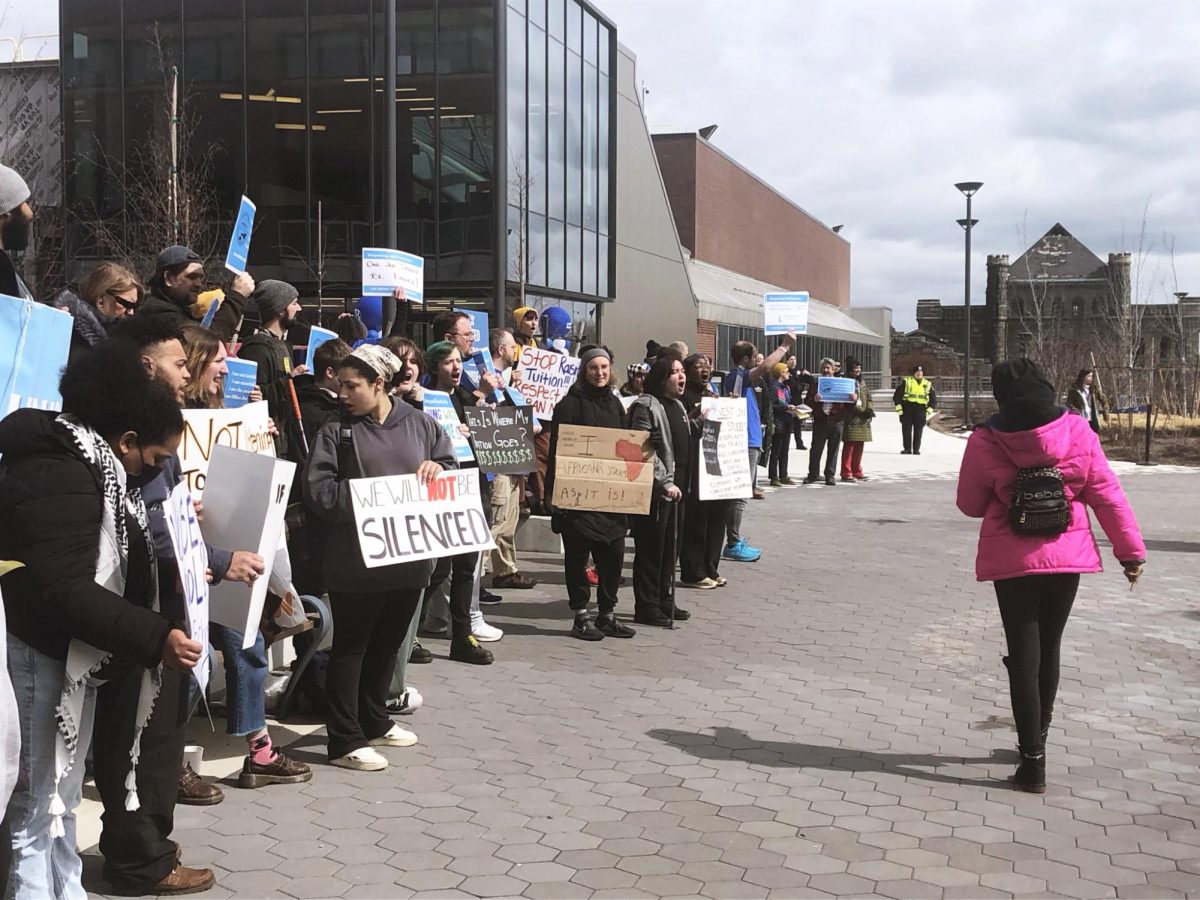University administrators across the country were busy this summer adopting policies to limit the kinds of demonstrations that swept college campuses last spring when students protested against the war in Gaza.
This national response from university leaders, including here at UMass Boston, is no doubt a reaction to the scrutiny and intrusion that such protests brought to universities, who were routinely called out for not cracking down hard enough on student protestors. Almost without exception, college administrators across the country responded by indulging politicians — who were looking to score political points at the expense of “liberal” universities — by implementing reactionary policies and practices designed to discipline protestors and stop demonstrations. In this sense, the new policies limiting free speech on campuses this fall are a continuation of what was happening last spring.
These new rules should nonetheless worry us: limiting the duration of demonstrations, allowing protests only in designated spaces, requiring protesters to register “events” well in advance, placing restrictions on amplified sound and signage, preventing “outsiders” from coming onto campus, and banning encampments altogether.
University of South Florida now prohibits any demonstrations after 5pm during the week, during the weekend, or during the last two weeks of a semester. Rutgers University requires students to fill out the wonderfully Orwellian “Free Expression Notification Form.” And right here in Boston, Emerson College now prohibits protests on much of its campus, requires students to pre-register demonstrations, demands that protests end at 7 p.m., and compels students to show ID and remove face masks if asked by staff. These restrictions were imposed on campuses across the country over the summer — welcome back!
Put another way, instead of promoting debate or adopting educational methods for addressing pressing social issues, administrators across the country opted for the disciplinary path, racing to find new ways to limit free speech and curtail protest on the nation’s campuses.
Since UMass Boston did not experience much in the way of protests or demonstrations last spring, our administrators were faced with the tough task of imposing a solution where there was no problem. They opted for the sneaky route. On the first day of fall classes, the UMass Boston Administration sent out an innocuously titled email: “Our Expanded Outdoor Space.” It begins by telling us about the beautiful new Quad and other outdoor spaces. Wonderful!
In the second paragraph, we are told that with new spaces come new policies, including ones regulating free speech. Wait — what? Why does improved outdoor space, more picnic tables, or an outdoor basketball court require reworking policies regulating freedom of expression? What’s the connection? Shockingly, the email tells us nothing about the new policies, or why finishing the Quad requires their rethinking. It simply ends with: “we have updated the protest and demonstration section of our space use policy.”
After clicking on the link, and scrolling all the way down, you get to “Protests and Demonstrations,” which includes both the policy and the “Protest Demonstration Advanced Notification Form.” Would any organizer or organization fill out this scary form? If the intention is to shut down demonstrations on campus, well done, admin!
As for the policy itself, aside from requiring five days’ notice and other problematic measures, it is striking that demonstrations are not allowed near the Quad. We are told in the original email that the Quad is awesome and freedom of speech is really important on campus, and that the completed Quad led the Administration to rethink policies on free speech. After doing so, and talking to no one else on campus, they came to the inevitable conclusion that demonstrations should be prohibited in the Quad — the very space that led them to rethink the policy, and what also happens to be the heart of campus. Enjoy the new outdoor space — just not as a site for public discussion and debate.
Let’s hope UMass Boston does not renovate any more campus spaces, or free speech at the university might be dead.
Steve Striffler is a Professor of Labor Studies and Director of the Labor Resource Center.

